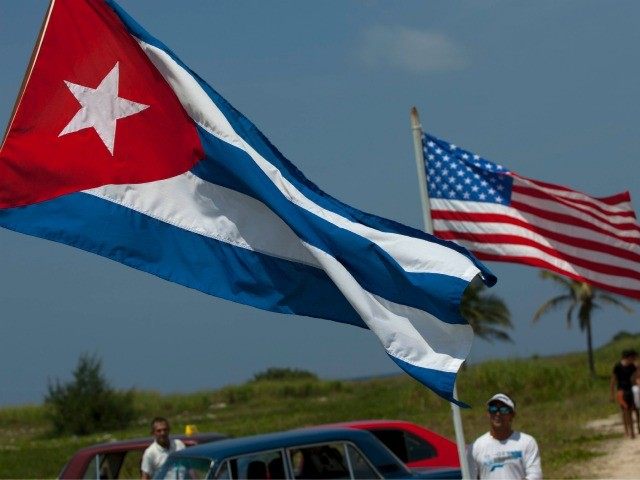The first round of talks between high-level Cuban and American diplomats since President Obama announced unprecedented concessions to the Castro regime has concluded, with Cuban officials insisting that any changes to the way the communist regime treats dissidents or controls the spread of information “aren’t negotiable.”
Speaking to the Associated Press, Josefina Vidal, the leader of the Cuban delegation to the talks in Havana, asserted that “changes in Cuba aren’t negotiable” and that the communist government refuses to “give up the principles it believes in.” The remarks were in response to the Cuban government’s admission that American diplomats had, in fact, brought up the subject of human rights during those talks.
The Cuban government, the AP notes, appears to be more interested in receiving more benefits from reestablishing dialogue with the United States. Paramount on the list of demands for Cuba is to be removed from the United States list of State Sponsors of Terrorism. “It will be difficult to conceive of the reestablishment of relations” without being removed from the list, Vidal said. Cuba has long aided a variety of Marxist terrorists by providing them safe harbor, paramount among them the leaders of the Revolutionary Armed Forces of Colombia (FARC), a guerrilla terrorist group that also boasts the privilege of being the wealthiest non-jihadist terrorist group in the world (the only terrorist group with more money? The Islamic State).
From remarks made by Cuban and American officials, it appears that the state sponsor of terrorism issue did not receive as much attention as that of the treatment of Cuban dissidents on the island. 2014 saw a record number of politically-motivated arrests for many months, particularly in the summer. Almost 1,000 Cubans were detained for speaking publicly against the Cuban government in June, and over 100 were arrested on Human Rights Day in December alone.
Vidal told Spanish-language sources that, while human rights did come up during talks, “I can confirm that the word ‘pressure’ was not used… Cuba has never responded nor will ever respond to pressure.” On MSNBC, Vidal insisted that Cuban dissident calls for open elections were a threat to national security. “This is not just genuine, legitimate Cuban civil society,” she insisted, “This small group of people don’t represent Cuban society, don’t represent the interests of the Cuban people.”
Vidal’s comments followed a visit by U.S. Assistant Secretary of State Roberta Jacobson to a group of Cuban dissidents during her trip to Havana. “There is no doubt that human rights remains the center of our policy and it is crucial that we continue to both speak out about human rights publicly and directly with the Cuban government,” Jacobson said in response to criticism from supporters of the communist regime.
The recently concluding talks are believed to be the first in a series with Cuba, as per President Obama’s orders, though officials said it may take “weeks” to schedule a new round of negotiations.

COMMENTS
Please let us know if you're having issues with commenting.